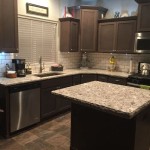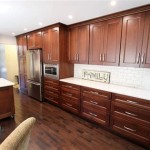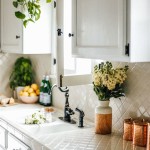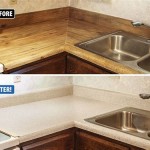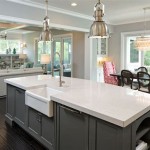Butcher Block Countertops For Island
Butcher block countertops are a popular choice for kitchen islands because they are durable, easy to care for, and can add a touch of warmth and character to your kitchen. Here's what you need to know about butcher block countertops for islands:
Types of Butcher Block Countertops
Butcher block countertops are typically made from hardwoods such as maple, oak, or walnut, but they can also be made from bamboo or other sustainable materials. Edge-grain butcher block countertops are the most durable of the three types of butcher block countertops, even after prolonged use from heavy chopping. butcher block countertops are made by gluing strips of wood together with the grain running perpendicular to the surface of the countertop, resulting in a very hard surface that's resistant to scratches and dents. Face-grain butcher block countertops have a more traditional look and feel, perfect for someone who wants a rustic kitchen island. End-grain butcher block countertops are the thickest, heaviest, and thus the most durable type of butcher block countertop.
Pros of Butcher Block Countertops
Butcher block countertops have a number of advantages over other types of countertops, including:
- Durability: Butcher block countertops are very durable and can withstand heavy use. They are also resistant to scratches and dents.
- Easy to care for: Butcher block countertops are easy to clean and maintain. Simply wipe them down with a damp cloth and apply mineral oil or butcher block conditioner as needed.
- Warm and inviting: Butcher block countertops add a touch of warmth and character to any kitchen.
- Affordable: Butcher block countertops are more affordable than other types of countertops, such as granite or marble.
Cons of Butcher Block Countertops
Butcher block countertops also have some disadvantages, including:
- Can stain: Butcher block countertops can stain if they are not properly sealed and maintained.
- Can scratch: Butcher block countertops can scratch if they are not properly cared for.
- Not heat resistant: Butcher block countertops are not heat resistant and can be damaged by hot pots and pans.
How to Care for Butcher Block Countertops
Butcher block countertops are easy to care for, but they do require some maintenance to keep them looking their best. Here are a few tips for caring for butcher block countertops:
- Clean regularly: Wipe down your butcher block countertops with a damp cloth after each use. You can also use a mild soap and water solution to clean them.
- Apply mineral oil or butcher block conditioner: Apply mineral oil or butcher block conditioner to your butcher block countertops every few weeks to keep them moisturized and protected.
- Avoid using harsh chemicals: Do not use harsh chemicals or cleaners on your butcher block countertops. This can damage the finish and make them more susceptible to stains and scratches.
- Protect from heat: Do not place hot pots and pans directly on your butcher block countertops. This can damage the finish and cause the wood to warp.
Conclusion
Butcher block countertops are a great choice for kitchen islands because they are durable, easy to care for, and can add a touch of warmth and character to your kitchen. Just be sure to keep them properly sealed and maintained to keep them looking their best for years to come.

Butcher Block Countertop Review Fletcher Creek Cottage

Hardwood Countertops Kitchen Island Tops Lafor

Butcher Block Countertops Ing Guide The Home

36 Butcher Block Island Ideas From Rustic To Modern

Custom Wormy Chestnut Island Kitchen Reclaimed Wooden Butcher Block Strong Oaks Wood

Butcher Block Top Island

Installing Butcher Block On A Kitchen Island Sew Woodsy

Reclaimed Butcher Block Mixed Hardwood Countertops From Pallet Skids Custom Built Kitchen Islands Desk Tops Etsy Wood Build Island

Custom Diy Butcher Block Island Top House By The Bay Design

How To Choose The Right Butcher Block Countertops For Your Kitchen
See Also

